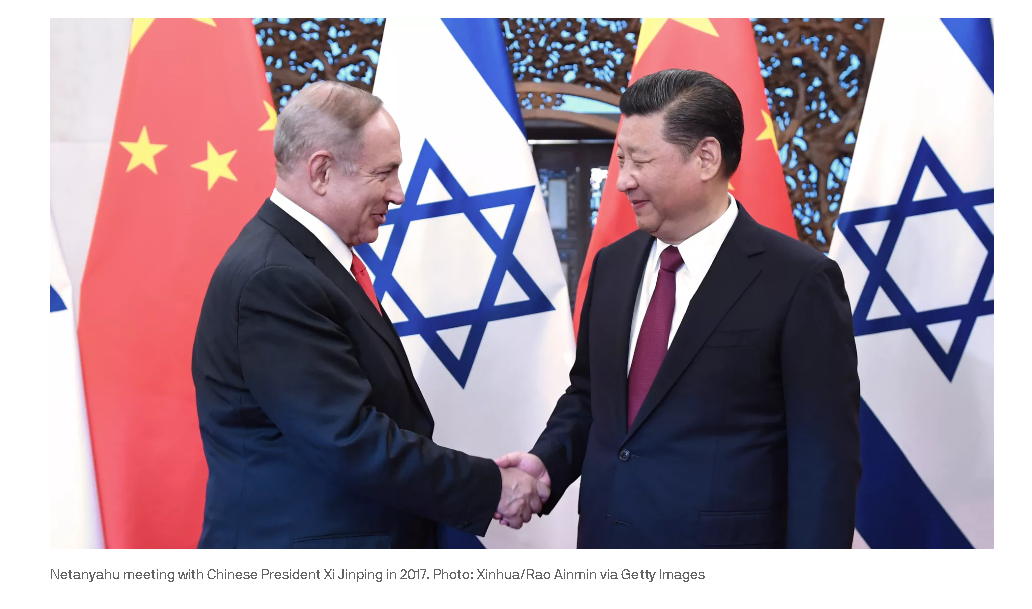
Barak Ravid, author of from Tel Aviv
The Trump administration is concerned Chinese investments in the Israeli tech industry could harm Israeli and U.S. national security, assistant secretary of state for Near East Affairs David Schenker said Monday at a conference organized by the SIGNAL think tank, which focuses on Israeli-Chinese academic cooperation.
Why it matters: The Trump administration has previously raised concerns in private about Chinese involvement in Israel’s booming tech sector. This is likely the first time the administration has done so in public.
The big picture: The Trump administration has been engaged in a worldwide campaign to counter Chinese influence.
- As part of this campaign, the U.S. has pressed Israel to cool its ties with China and limit Chinese investments in the Israeli economy.
- The pressure campaign hasn’t achieved substantial results, with Israel rejecting U.S. requests to regulate and monitor Chinese investments in Israeli tech companies.
What they’re saying: Schenker said in a Zoom speech from Washington that the Israeli tech sector is a main target for the Chinese government and that the U.S. is concerned China would purchase Israeli civilian technology with dual use that could pose a national security threat to both countries.
- “We would like to see Israel doing more to monitor Chinese investments — mainly in hi-tech,” Schenker said.
- He stressed that the U.S. doesn’t expect Israel not to trade with China, but wants to ensure it has no illusions about fostering ties with China.
- “Ask yourselves if you think China will ever be committed to Israel’s security as the U.S. is, or promote agreements like the Abraham Accords,” Schenker said.
He added that Secretary of State Pompeo pressed the Israeli government to tighten oversight on Chinese investments and said the current Israeli monitoring mechanism is too weak.
- Schenker also stressed that Israel should speak up about Chinese human rights violations and Chinese oil purchases from Iran, “which undermine the efforts to counter Iranian aggression in the region.”
What’s next: Israeli officials think tougher U.S. policy on China has bipartisan support and expect it to continue under a Biden administration.
- They recommended that Israel screen Chinese high-tech investments in sensitive areas, conduct a retroactive review of past investments, and scrutinize tenders prior to awarding a foreign bid, particularly those associated with advanced technology. They even proposed that Israel draft a list of forbidden business sectors.
- Dubowitz and Schanzer also proposed the next administration encourage Israel to strengthen its legal and bureaucratic defenses against China’s malign activities, including by limiting former senior Israeli officials from working for Chinese state-owned enterprises or private Chinese companies that pose security risks.
- Retired Israeli Gen. Assaf Orion of the Institute for National Security Studies wrote in a policy paper last week that because the U.S. sees China as its main national security threat, Israel will have little room to maneuver vis-à-vis China and won’t be able to continue business as usual.
- Orion, one of the most respected national security experts in Israel, wrote that the lessons learned by the U.S. on China should be a warning sign for Israel about the threats that Beijing poses.
Mark Dubowitz and Jonathan Schanzer from the hawkish Foundation for Defense of Democracies also published a policy paper last week on the difference in U.S. and Israeli policy toward China.
https://www.axios.com/chinese-investment-israeli-tech-1c9dad9e-bbe2-456e-8651-ff7e08bd3f66.html
